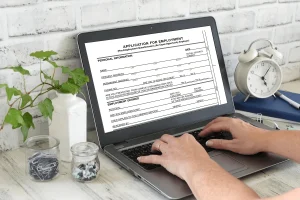Just graduated? Congratulations! You might be currently looking for a rewarding career to pursue. While the job market today can be competitive, you can always rely on the financial sector for the perfect professional opportunity. Why is this so? Constantly evolving, working in finance is an excellent fit for anyone who:
- Likes crunching numbers while applying their mathematics skills;
- Is interested in learning about the inner workings of markets and businesses; and
- Wants to follow a career that does not get stale.
While the workload is demanding, it rewards you with high pay. This can lead to a lucrative career path with plenty of growth potential, even in just a few years. You don’t need to start with a high position; even an entry-level job in finance can provide a substantial income. There’s also plenty of room to grow. However, as noted above, this also makes it a very competitive sector, even if you come fully prepared.
Fortunately, knowing which entry-level position is right for you and what requirements you need for it can help you break easier in this industry. To help you, we’ve listed the the top 10 entry-level jobs in finance, the requirements you need, and everything else in between. Let’s jump in.
Related Article:
Job Outlook for Entry-Level Finance Work
It’s important to remember that the financial industry is competitive and cyclical. Furthermore, as per Bloomberg, there’s the possibility of a looming recession, which may slow down the economy in the coming years. Because the finance sector is dependent on this, there’s a chance it may be affected.
Nevertheless, a report from the US Bureau of Labor Statistics reveals that finance-related occupations are on track to grow between 2020 and 2030. Even with the pandemic, a silver lining came through with digital finance, thereby increasing the demand for professionals.
So, an entry-level finance position means that finance graduates can still earn plenty. Of course, cash bonuses, commissions, tips, and profit-sharing are available, depending on where you work.

Career Path for Finance Degree Holders
Regarding career paths in the financial sector, the two most common are financial management and financial planning. If you choose financial management, expect to be involved in the expenses, profitability, cash, and credit of the firm you’re working for.
On the other hand, financial planning will have you working with both families and individuals on a more personal level. This includes, among others, tax planning, investment strategies, and debt management.
Top 10 Entry-Level Jobs in Finance
Whichever path you decide to take, however, you can expect a reasonably promising career. Below, we’ve listed the 10 entry-level jobs in finance that you can pursue.
🔍 Think Your Resume’s Fine? Let’s Double-Check That
Even strong resumes can miss critical details—especially when it comes to passing Applicant Tracking Systems (ATS). Our specialists offer a free review to uncover gaps, improve formatting, and ensure your resume is ATS-ready and recruiter-friendly.
1. Accountant
If you’re handy with numbers, working as an accountant is a great stepping stone. You only need an undergraduate degree in finance or business, and you can earn as much as $73,560 on average. The job outlook also grows at a rate of 7%, placing plenty of confidence in this field.
2. Loan Officer
If you’re good at talking to people and evaluating, starting as a loan officer can be a great pick. Currently, the job outlook is only 1% from 2020-30. However, you can still earn around $63,380 annually. Plus, you can work even without an undergraduate degree. Of course, you can eventually leverage your position for a higher-paying one over time.
3. Budget Analyst
If you have a knack for organizing finances and budgeting, a job as a budget analyst should fit perfectly. With an annual income of $79,940 and a 5% growth rate, it’s a great place to start. What’s more, this entry-level finance position only requires a bachelor’s degree. That being said, some coursework in accounting, statistics, or economics should help.
4. Junior Tax Associate
Financial services associated with taxation are in constant demand. This means that there are always plenty of available positions. As a tax associate, you are responsible for researching, reviewing fiscal systems, and other related tasks. You also need a bachelor’s degree in accounting and expect to get paid as much as $55,640 yearly. However, you need higher education if you want a better position.
Unfortunately, there may be a 4% decline in the coming years in terms of job outlook. Still, it’s an excellent position to be in. In time, you can advance to higher positions like a budget director, accounting manager, or even chief financial officer.

5. Financial Analyst
If you like staying updated with economic trends, you will do well as a financial analyst. Typically, financial analysts advise clients and businesses on the best way to invest and diversify their assets. Aside from that, you may also help determine a company’s value and assess any possible financial risks and prospects.
As for educational requirements, most companies will require a bachelor’s degree in finance. You can also earn $81,410 annually with a 6% growth rate in job outlook.
6. Data Analyst
If you like finance and technology, then your ideal calling might be to work as a data analyst. These professionals deal with tasks like analyzing stock and inventory, reviewing sales performance, or monitoring marketing.
As for the requirements, many data analysts have a bachelor’s degree. However, you need graduate-level schooling if you want a higher position. You can also expect a salary of around $82,360 annually, with a high job outlook rate of 25%.
7. Personal Financial Advisor
This is for people with excellent financial literacy. While it’s an entry-level job, it still carries plenty of responsibility. That’s because this job deals with helping individuals with their insurance, taxes, and investments. You may even help with college savings, retirement, or benefits.
Anyone interested will need a finance or accounting degree. However, moving up the ranks may require an MBA. As for salary expectations, you can earn as much as $94,170 annually, with a job outlook rate of 5%. Since you work with individuals, you can also earn from commissions.
8. Economist
Another great entry-level job in finance is working as an economist. The position itself is perfect for anyone interested in the science behind finance. What’s more, annual salaries can be as much as $105,630 in the private sector. There’s also a job outlook rate of 13%, which is faster than average.
However, there is a caveat. Most private-sector economist jobs require an advanced degree to qualify. That said, getting into government offices is easier, as these usually only require a bachelor’s degree.
9. Insurance Claims Adjuster
If you’re interested in investigating or working with people, you will find plenty of opportunities here. These professionals typically work with insurance companies and either make estimates or perform investigative work.
What’s great about this entry-level job is that you don’t need a bachelor’s degree and can still earn as much as $64,710 per year. Plus, you can also earn from commissions, depending on the company. However, some employers may require one. For this reason, consider applying for several firms.
10. Compensation and Benefits Specialist
If you prefer to work in H.R., working as a compensation and benefits specialist will be a great fit. These professionals are tasked with determining fair wages to fit the needs of both employer and employee. You can also do other related tasks. An entry-level finance position will net you as much as $64,102 annually; and you will need a degree in business administration, human resources, or finance.

Tips for Getting an Entry-Level Job in Finance
Knowing where to start can be tricky if you’re a new graduate. Starting at the bottom can be scary as well. As such, we’ve included these tips to increase your chances of securing that entry-level finance position.
1. Get the right qualifications.
If you want to enter finance, get the right qualifications and education. Luckily, this industry constantly evolves, so you can get in with a related degree and a good GPA. Aside from that, adding certifications under your belt via online courses will also help you get a leg up.
2. Look for internships.
Internships provide relevant experience, helping you prepare for an entry-level finance job. They’re also a great interview selling point and allow you to connect with industry people.
3. Master basic technical skills.
Finance deals with plenty of numbers, so brushing up on your math and Microsoft Excel skills will help. You can also further develop other software-based skills.
4. Acquire the right credentials.
Other than the relevant educational background, you can also differentiate yourself with credentials. You can take the CFA or SIE, depending on your chosen career path.
5. Work on your job search tools, such as resume and CV.
Keep your resume updated when applying for an entry-level finance job. Avoid a cookie-cutter resume, and customize it for the firm you’re applying for. Highlight your skills, credentials, and experience and mention how you can contribute to the company. Adding industry-specific keywords aptly tailors your resume specifically to the job position you’re applying for. Hence, it increases the chances of your resume beating the applicant tracking systems (ATS) and grabbing the hiring managers’ attention.
To learn more about what an entry-level finance resume should look like, you may review our finance resume examples written by our professional resume writers.
6. Polish your interview skills by preparing in advance.
Finally, prepare for your job interview. Doing so allows you to answer the most common interview questions with confidence and grace. These include the statements such as:
Related Article:
12 Career Advice for Young Professionals to Land Your Target Post
Entry-Level Jobs in Finance Start with a Great Resume
Ultimately, finance jobs are demanding, thus you need to be fully committed. This means learning about anything finance-related. It also means keeping updated about market trends, sectors, and the like. Now that you have a solid foundation for entering the finance sector, you can decide which path to take.
And to do that, you need a solid resume to help you stand out and showcase your capabilities. For such needs, we at Resume Professional Writers have got your back. Don’t waste your chances and craft a topnotch job search tool. Our team of career experts offers resume and CV writing and job posting for aspiring entry-level finance job seekers like you. Check our resume services or contact us today to learn more.









